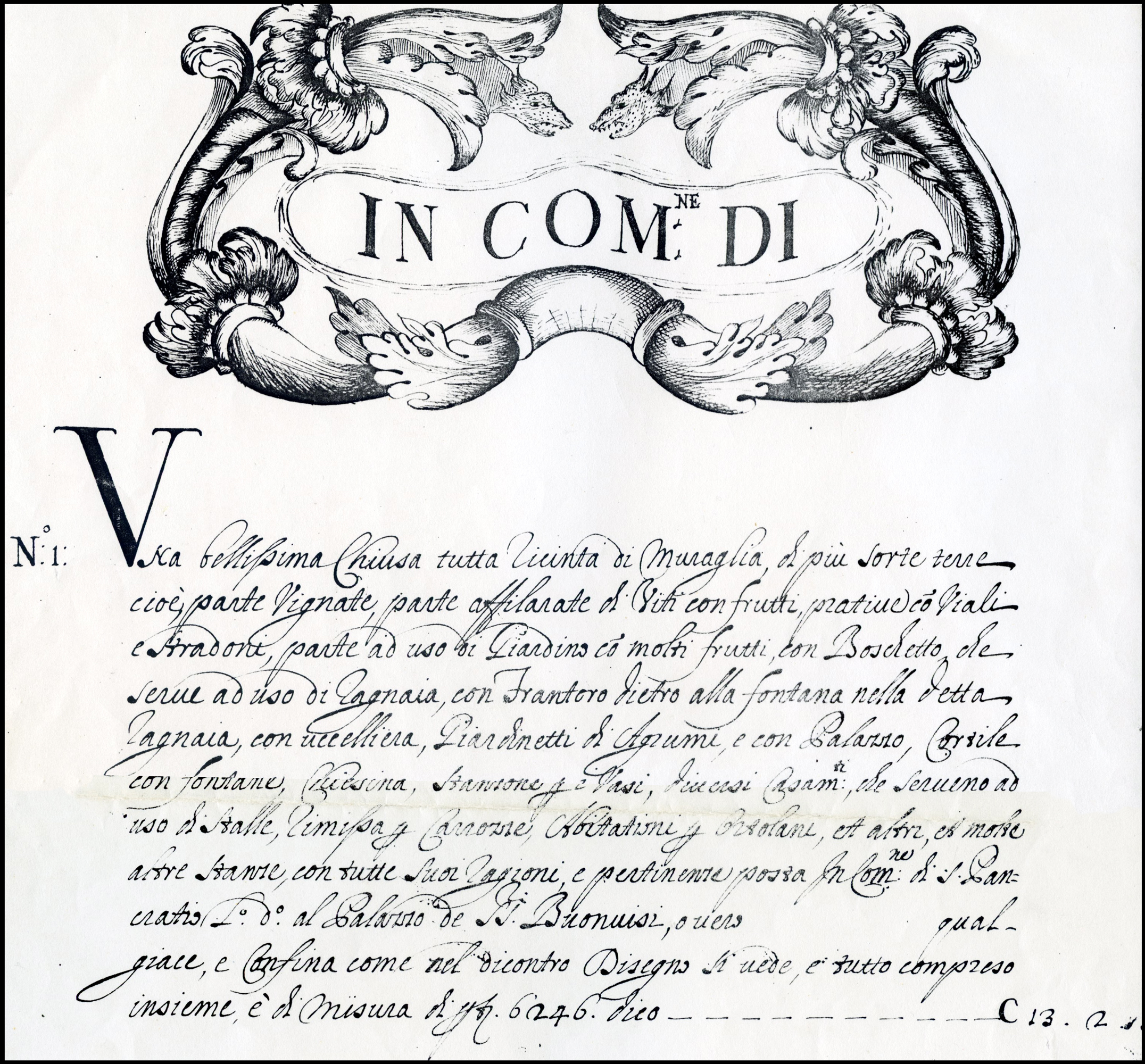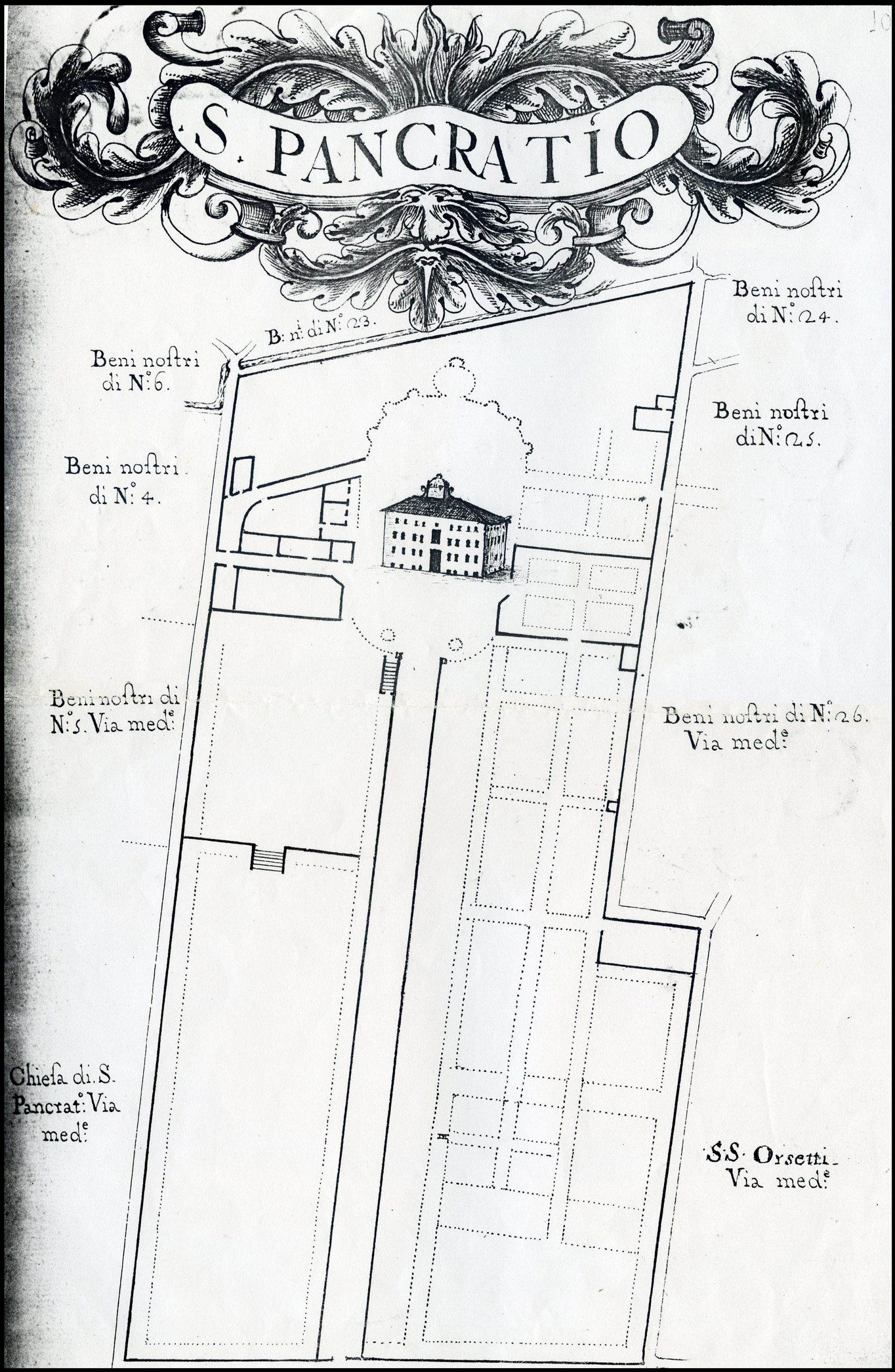History
The first news of the villa dates back to the end of the fifteenth century, when the owners were the Buonvisis. Later it belonged to the Montecatini, to Prince Carlo Poniatowski, to the Rosselmini,
In S. Pancrazio, on the slopes of the Pizzorne plateau, there is Villa Oliva, once Buonvisi. The origins of this family, although uncertain, are traced by some genealogists to Bonviso di Corrado, German, advisor to Emperor Otto III; others remember a certain Buonithiso who, in 1042, offered lands to the church of San Pancrazio.
The family, very numerous as it was made up of eight branches that made it stable both politically and economically, reached the apex of its splendor first with the trading of silk, then with the banking system. Their turnover was vast and extended to Flanders, Spain, England and other European countries so that, sometimes, their decisions, thanks also to the large capital with which they could afford to favor a sovereign or the other, they even influenced matters of foreign policy.
In this family, exponents of the ecclesiastical hierarchy could not be missing, well represented by three cardinals.
Among these the most famous was Francesco, son of Vincenzi Buonvisi, and Maria Gabrielli, born in 1626. He was nominated Cardinal by Innocenzo XI in 1681 and, in 1690, he became Bishop of Lucca. He was apostolic nuncio to Cologne, Warsaw, Vienna, where he very well defended the Christian community, threatened by the Turks. Returning to Lucca, he devoted himself exclusively to the care of his diocese and, only a few months before his death, in 1700, he convened a solemn Synod which took place in the hall on the main floor of the Villa today Oliva.
In 1800, with the death of Francesco Gerolamo, the family died out and since then the villa, like the assets, passed to other owners. Francesco Montecatini, son of Nicolao Montecatini and Maria Caterina Buonvisi, was the first heir of the name and wealth. Having died without heirs, the assets passed to Elisa Montecatini, wife of Prince Carlo Poniatwski, buried in the chapel of the villa; then they were bought by Nicodemo Pangiluppi, who kept them for about a year.
In 1892 the villa was purchased by the Pisan Ludovico Rosselmini Gualandi and, on his death, it was inherited by his wife, Countess Augusta Raimondi. This she, in 1923, made a hospice called “Little house of Divine Providence in Turin”. Finally the villa was bought by the Oliva family, an ancient Genoese family.
Among these the most famous was Francesco, son of Vincenzi Buonvisi, and Maria Gabrielli, born in 1626. He was nominated Cardinal by Innocenzo XI in 1681 and, in 1690, he became Bishop of Lucca. He was apostolic nuncio to Cologne, Warsaw, Vienna, where he very well defended the Christian community, threatened by the Turks. Returning to Lucca, he devoted himself exclusively to the care of his diocese and, only a few months before his death, in 1700, he convened a solemn Synod which took place in the hall on the main floor of the Villa today Oliva.



